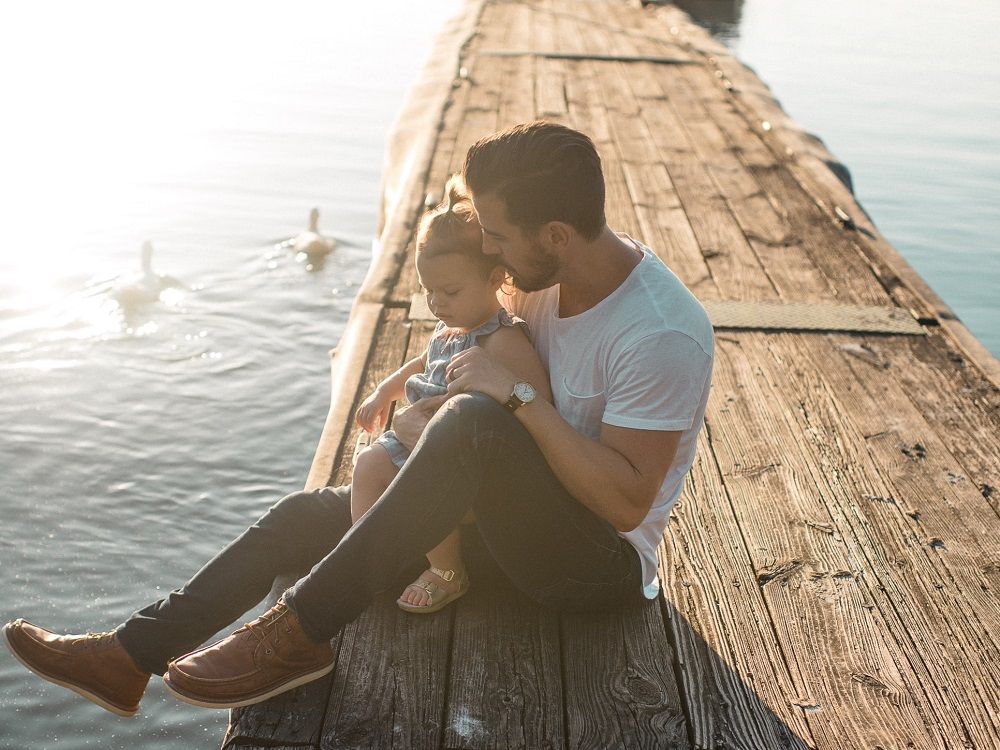Types of parenting styles: the pros and cons as listed by the experts
Key points:
- The four main styles of parenting are: authoritarian, permissive, uninvolved and authoritative.
- In recent years, some experts have defined a number of additional styles, including toxic, helicopter and positive parenting.
- Different parenting styles can have different effects on children, but the best ones tend to be highly nurturing and set clear expectations and rules.
What type of parent are you? What type do you want to be? Maybe you’ve never thought about your personal parenting style before, or maybe you’ve thought about it nonstop since becoming a parent.
There are several different styles of parenting. We’ll discuss several below, along with the pros and cons of each, as identified by experts.
Before we start, keep these three things in mind:
- Most parents don’t fit neatly into just one parenting style. You may lean more toward one than others, but chances are you alternate styles depending on the situation, your mood or any number of reasons.
- No one style is guaranteed to ‘work’. Think of this as a guide to inform how you relate to your kid(s), not a how-to manual to make them turn out a certain way.
- Every child is different. You may need to adapt how you parent, depending on your child’s unique needs. Some kids need direction and structure. Others thrive in a freer environment.
So where do these parenting styles come from anyway?
In the 1960s, psychologist Diana Baumrind identified three main styles of parenting: permissive, authoritarian and authoritative. Other researchers built on Baumrind’s work a few years later, adding a fourth style: uninvolved (also known as neglectful).
The number of distinct parenting styles proposed by experts has proliferated in recent years, with some of the newer entries including toxic, helicopter and positive parenting. We’ll cover each of these below.
Authoritarian parenting
Authoritarian parents mainly want obedience, order and good behavior. They believe kids should obey instructions without talking back, rules are to be strictly enforced and disobedience should be met with firm punishment.
Some things you might hear an authoritarian parent say are:
- ‘Because I say so’.
- ‘Do as you’re told’.
- ‘This isn’t a conversation’.
Authoritarian parents set high expectations, but aren’t very nurturing.
They establish strict rules and clear boundaries. They’re not as responsive to their child’s emotional or physical needs, relying mostly on one-way communication. The child’s opinions and preferences usually aren’t a factor.
Authoritarian parents rely on punishment to ensure obedience. Often, it’s more about making kids feel sorry than about helping them learn.
Authoritarian parenting has some seemingly positive effects. For example, children tend to be well behaved and are generally better at following detailed instructions. However, kids raised by authoritarian parents may be more likely to:
- Have lower self-esteem
- Experience depression
- Respond with aggression
- Struggle in school
- Engage in negative behaviors as a way of rebelling
Permissive parenting
At the other end of the parenting spectrum are those who want to nurture their children’s independence. Permissive parents place few limitations on their children, seeing them as friends rather than subordinates. They believe their kids’ happiness comes first.
Some things you might hear a permissive parent say are:
- ‘Kids will be kids’.
- ‘Live and learn’.
- ‘I don’t want to stifle my child’.
Permissive parents are highly nurturing, but expect little from their children.
They tend to be very protective, caring and affectionate. They are highly responsive to their child’s emotional or physical needs. However, permissive parents have a hard time setting boundaries and enforcing consequences.
Children raised by permissive parents usually know that they are loved and generally have good self-esteem. Some adults credit their permissive upbringing for instilling a sense of independence.
However, permissive parenting can have several negative effects. Children raised this way may be more likely to:
- Struggle with mental health
- Experience health problems
- Engage in risky or negative behavior as teenagers
- Show a sense of entitlement and lack of self-regulation
Uninvolved parenting
A parent who’s uninvolved tends to stay out of their child’s way – or make sure the child stays out of their way. There are few, if any, positives to this style of parenting.
It’s important to note that very few parents choose to be uninvolved – it’s often a product of circumstances beyond their control. It could be a family crisis that pushes everything else to the side, or financial hardship that forces a parent to work more than one job. Some people believe they’re not cut out to be a parent, or they’re just not sure how to raise their child.
A couple things you might hear an uninvolved parent say are:
- ‘They’ll have to fend for themselves’.
- ‘I just don’t know what to do’.
Uninvolved parents tend to be low on nurture and expectations for their child.
Rules are generally not enforced, much less established. An uninvolved parent may show little interest in their child’s education or social life. They may not be able to do much more than provide for their child’s basic physical and emotional needs.
Children of uninvolved parents can develop resilience, but it’s a resiliency born of necessity. In terms of overall wellbeing, children raised by a neglectful or uninvolved parent usually fare the worst:
- They’re at higher risk of abuse.
- They often have lower self-esteem.
- They’re more likely to suffer from anxiety and depression.
- They don’t perform as well in school.

Authoritative parenting
Not to be confused with authoritarian parenting, authoritative parents aim to nurture a positive relationship with their children. They view children as members of the family, not as subjects to be ruled. Authoritative parents believe that being a supportive presence and nurturing your child’s autonomy are not mutually exclusive.
They are highly nurturing and set high expectations for their children. Authoritative parenting differs from other styles in a few key ways:
Setting expectations
- Unlike authoritarian parents, they involve their children in setting rules and expectations, taking their feelings into account.
- Unlike permissive parents, they set clear boundaries for their child’s behavior.
Approach to discipline
- Unlike authoritarian parents, they value discipline over punishment. An authoritative parent’s main objective is to help their child learn, not to make them feel sorry.
- Unlike permissive parents, they don’t try to shield their children from the consequences of their actions. Authoritative parents let their kids make mistakes.
Conflict resolution
- Unlike authoritarian parents, their goal is not to win every argument or demand unquestioning obedience. Authoritative parents allow for a real give-and-take with their kids.
- Unlike permissive parents, they don’t try to avoid conflict at any cost.
Listening to their children
- Unlike authoritarian parents, they take time to listen to their children, validate what they are feeling and help them process their emotions. Authoritative parents value connection over compliance.
- Unlike permissive parents, they are consistent in holding their children to the clear rules and expectations they’ve established together.
Authoritative parenting has several positive impacts on children:
- Children earn better grades and show greater commitment to learning.
- They are more likely to take responsibility for failures.
- They tend to develop better problem-solving and decision-making skills.
- They are better equipped to They are better equipped to feelings and behaviors.

Other parenting styles
In recent years, a growing number of parenting experts have outlined a number of additional parenting styles. Some are a variation of one of the four main styles we’ve already looked at. But three are worth mentioning here.
Toxic parenting
This is hands-down the most harmful style of parenting. A toxic parent’s core style can be either authoritarian or uninvolved.
Signs of toxic parenting include:
- Selfish behavior, including a tendency to make every situation about the parent.
- Physical, verbal or emotional abuse. This can include hitting, name-calling, threats and more.
- Controlling and manipulative behaviors – for example, using guilt or shame to make a child comply.
- A refusal to respect the child’s boundaries when they are older.
The effects of toxic parenting can be devastating. It causes children to feel trapped, and it can forever damage the parent-child relationship.
Helicopter parenting
Helicopter parents are driven by a well-intended desire to protect their children from disappointment or hurt. As a result, they try to orchestrate every aspect of their child’s life – choosing what activities they participate in, who their friends are, even sometimes doing their work for them. This approach is sometimes described as ‘hovering’.
Some experts believe this style is especially common among Gen X parents (those born from 1965 to 1980), who may be overcorrecting for their own upbringing.
Positive parenting
This is a form of authoritative parenting that places special emphasis building a caring, nurturing relationship between parents and children by doing the following:
- Treating children with respect
- Setting clear expectations
- Spending more time celebrating positive behavior than correcting negative behavior
- Giving kids choices whenever possible.
Learn more about the benefits of positive parenting.
Remember, no parent is perfect. And no parent fits neatly into just one parenting style. What matters is that you are present in your child’s life – ready with affirmation and support, setting clear boundaries and expectations, and picking them up when they fail.
Want to learn more?
Movember launched Family Man to improve the confidence and mental health of dads.
Learn how to master kick-ass parenting strategies by getting started with Family Man. It’s an interactive parenting video series that's expert-backed and funded by Movember.
If research is your thing take a closer look at the evidence behind Family Man.
Or learn more before diving in.